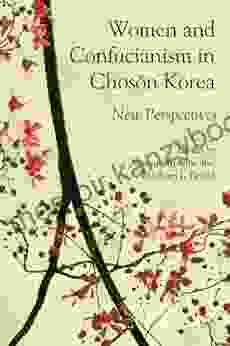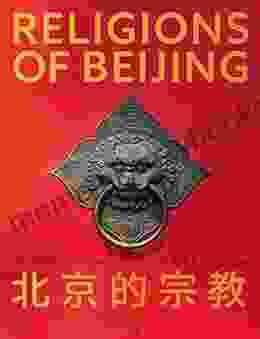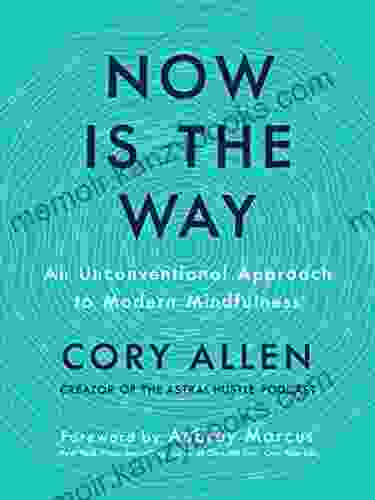Exploring the Interplay of Women and Confucianism in Choson Korea: A Comprehensive Examination

Confucianism, as a profound philosophical and ethical system, has deeply shaped the cultural and social fabric of many East Asian societies, including Korea. Throughout the Choson dynasty (1392-1910),Confucian principles exerted a significant influence on all aspects of life, including the roles and expectations of women. This article aims to provide a comprehensive examination of the complex relationship between women and Confucianism in Choson Korea, offering a nuanced understanding of their experiences, constraints, and agency within the dominant social framework. Through historical analysis, sociological insights, and cultural perspectives, we will explore the multifaceted interplay between Confucian ideology and the lives of Korean women during this era.
Confucianism and Its Impact on Korean Society
Confucianism, originating in ancient China, emphasizes the importance of social hierarchy, filial piety, and gender roles. In the Choson era, Confucian principles were deeply ingrained in Korean society, shaping the political, economic, and cultural spheres. The societal structure was largely patriarchal, with men holding positions of authority and dominance in both public and private life. Women, on the other hand, were relegated to the domestic sphere, expected to fulfill their roles as daughters, wives, and mothers.
5 out of 5
| Language | : | English |
| File size | : | 4079 KB |
| Text-to-Speech | : | Enabled |
| Screen Reader | : | Supported |
| Enhanced typesetting | : | Enabled |
| Print length | : | 180 pages |
Confucian teachings stressed the importance of chastity, obedience, and deference for women. They were expected to be subservient to men, particularly to their fathers and husbands. Women's education was often limited, and their participation in public affairs was severely restricted. In many respects, Confucianism reinforced a system of female subordination, confining women within strictly defined social boundaries.
The Lived Experiences of Women in Choson Korea
Despite the Confucian ideals that prescribed women's roles, the lived experiences of women in Choson Korea were far more complex and varied. While some women conformed to the expectations imposed upon them, others found ways to navigate the constraints and assert their own agency.
Domestic Life and Family Relationships
Women's primary domain was the household, where they were responsible for a wide range of domestic duties, including childcare, cooking, cleaning, and textile production. They were also expected to manage the family finances and oversee the education of their children.
Within the family hierarchy, women occupied a subordinate position to men. They were expected to obey their fathers and husbands, and their opinions were often disregarded in decision-making. However, some women were able to gain influence within the household through their skills in managing the family estate or their connections to powerful male relatives.
Marriage and Childbirth
Marriage was an essential institution in Choson Korea, and it was arranged by parents according to Confucian principles. Women were expected to marry young, typically in their early teens, and their primary role was to produce male heirs to carry on the family lineage. Childbirth was a central aspect of a woman's life, and it was seen as her primary duty to her husband and family.
Education and Cultural Activities
Although Confucianism placed a low emphasis on female education, some women did have access to learning. Elite women from yangban (aristocratic) families might receive private tutoring in reading, writing, and music. A small number of women also participated in literary salons and poetry gatherings, where they could express their creativity and engage in intellectual pursuits.
In addition to formal education, women were also involved in various cultural activities, such as embroidery, painting, and ceramics. These activities provided them with a means of self-expression and a way to contribute to the cultural life of their communities.
Religious Practices and Beliefs
Buddhism had a significant influence on Korean society during the Choson era, and many women found solace and spiritual fulfillment in its teachings. They often participated in Buddhist rituals and ceremonies, and some even became nuns. Buddhism offered women a sense of community and a space to explore their own spiritual journeys.
Women's Agency and Resistance
Despite the constraints imposed by Confucianism, women in Choson Korea found various ways to assert their agency and resist the limitations placed upon them.
Economic Activities and Property Ownership
Some women were involved in economic activities, such as running small businesses or engaging in trade. They might sell goods at markets or work in fields such as textiles, ceramics, or food production. Women also had the right to own property, although their control over it was often limited by patriarchal norms.
Female Networks and Support Systems
Women formed strong networks of support and solidarity, which provided them with emotional and practical assistance. They often relied on their mothers, sisters, and female friends for guidance, advice, and support in navigating the challenges of their lives.
Literary Expression and Cultural Production
A small number of women were able to express their voices through literature and cultural production. They wrote poetry, novels, and essays, which often explored themes of female experience, desire, and resistance. These works provide valuable insights into the inner lives of women in Choson Korea.
Religious Participation and Activism
Buddhism offered women a space to pursue their spiritual beliefs and engage in religious activism. Some women became prominent figures in Buddhist communities, and they played an active role in propagating the faith and providing support to others.
The relationship between women and Confucianism in Choson Korea was multifaceted and complex. While Confucian principles reinforced a system of female subordination, women found ways to negotiate the constraints and assert their own agency within the dominant social framework. Through domestic responsibilities, marriage and childbirth, education and cultural activities, religious practices, and economic pursuits, women played vital roles in the family, community, and nation. Their experiences and contributions shed light on the complexities of gender roles and the dynamic interplay between ideology and lived realities in East Asian societies.
By delving into the historical, sociological, and cultural dimensions of this topic, we gain a deeper understanding of the lives of women in Choson Korea. Their stories of resilience, resistance, and creativity inspire us to challenge societal norms and continue striving for gender equality and women's empowerment.
5 out of 5
| Language | : | English |
| File size | : | 4079 KB |
| Text-to-Speech | : | Enabled |
| Screen Reader | : | Supported |
| Enhanced typesetting | : | Enabled |
| Print length | : | 180 pages |
Do you want to contribute by writing guest posts on this blog?
Please contact us and send us a resume of previous articles that you have written.
 Book
Book Novel
Novel Page
Page Chapter
Chapter Text
Text Story
Story Genre
Genre Reader
Reader Library
Library Paperback
Paperback E-book
E-book Magazine
Magazine Newspaper
Newspaper Paragraph
Paragraph Sentence
Sentence Bookmark
Bookmark Shelf
Shelf Glossary
Glossary Bibliography
Bibliography Foreword
Foreword Preface
Preface Synopsis
Synopsis Annotation
Annotation Footnote
Footnote Manuscript
Manuscript Scroll
Scroll Codex
Codex Tome
Tome Bestseller
Bestseller Classics
Classics Library card
Library card Narrative
Narrative Biography
Biography Autobiography
Autobiography Memoir
Memoir Reference
Reference Encyclopedia
Encyclopedia Daniel J Levitin
Daniel J Levitin Amy Berger
Amy Berger Medium Rachel
Medium Rachel Amelia Freer
Amelia Freer Gluten Dude
Gluten Dude Amy Daniels
Amy Daniels Linda Gassenheimer
Linda Gassenheimer Amy Noelle Roe
Amy Noelle Roe Lauren Kelly
Lauren Kelly Andie Mitchell
Andie Mitchell Deborah Snyder
Deborah Snyder Ammie Elliott
Ammie Elliott Jeanne Sauvage
Jeanne Sauvage Amy Newbold
Amy Newbold Amy Le Feuvre
Amy Le Feuvre Amber Brooks
Amber Brooks Rachel Starr Thomson
Rachel Starr Thomson Anaiya Sophia
Anaiya Sophia Andrea Bieler
Andrea Bieler Heather Vogel
Heather Vogel
Light bulbAdvertise smarter! Our strategic ad space ensures maximum exposure. Reserve your spot today!
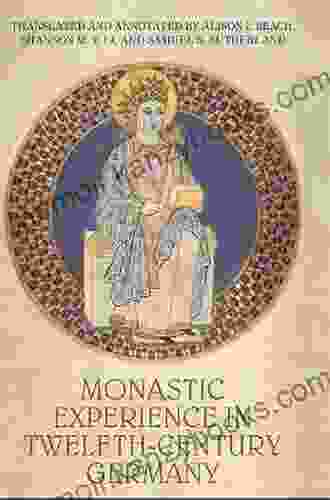
 Gabriel HayesMonastic Experience in Twelfth-Century Germany: Spirituality, Community, and...
Gabriel HayesMonastic Experience in Twelfth-Century Germany: Spirituality, Community, and...
 Miguel de CervantesEmbark on a Culinary Mystery Journey with "Alana Neill Mysteries With Vintage...
Miguel de CervantesEmbark on a Culinary Mystery Journey with "Alana Neill Mysteries With Vintage... Jeffrey HayesFollow ·12.9k
Jeffrey HayesFollow ·12.9k Desmond FosterFollow ·12.8k
Desmond FosterFollow ·12.8k Dean ButlerFollow ·4.6k
Dean ButlerFollow ·4.6k Danny SimmonsFollow ·2.9k
Danny SimmonsFollow ·2.9k Greg CoxFollow ·9.6k
Greg CoxFollow ·9.6k Julio CortázarFollow ·15.4k
Julio CortázarFollow ·15.4k Kevin TurnerFollow ·9.6k
Kevin TurnerFollow ·9.6k Edison MitchellFollow ·9k
Edison MitchellFollow ·9k

 Miguel Nelson
Miguel NelsonFour Cookbooks In One: Recipes To Fight Cancer, Heart...
Looking for a healthy way...
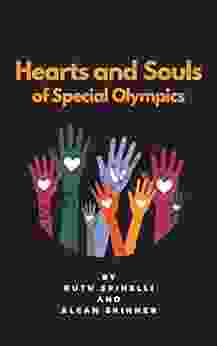
 Marcus Bell
Marcus BellHearts and Souls: Exploring the Lives and Legacies of...
The Special Olympics movement has been a...

 Tony Carter
Tony CarterDiagnosed With Breast Cancer: Navigating Life After the...
A breast cancer diagnosis can be a...
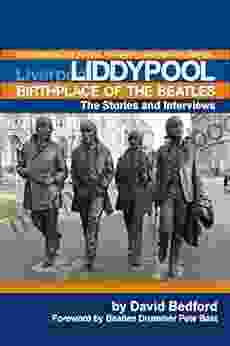
 Joe Simmons
Joe SimmonsLiddypool: The Stories and Interviews – A Literary...
In the realm of...

 Jett Powell
Jett PowellBreakfast for Boneheads: 66 Breakfast Recipes for Lazy...
Are you tired of eating the...
5 out of 5
| Language | : | English |
| File size | : | 4079 KB |
| Text-to-Speech | : | Enabled |
| Screen Reader | : | Supported |
| Enhanced typesetting | : | Enabled |
| Print length | : | 180 pages |


